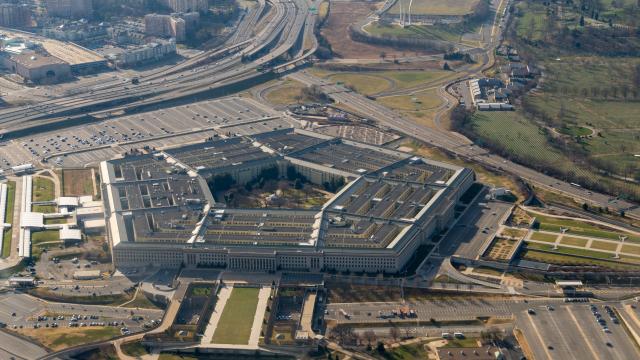This week, the New York Times reported that a tranche of classified material had leaked to the web. The documents, which were purported to involve the Pentagon and NATO’s military stratagems to assist the Ukrainians in their war with the Russians, were found on Twitter and the chat app Telegram.
On Thursday, the Defence Department told the Grey Lady that it’s in the process of investigating how the apparently secret plans had ended up splashed across newsfeeds.
Before the Pentagon could clear that up, however, more documents leaked online today. The Times reported Friday that “a new batch of classified documents” had spilled onto social media platforms. This time, the documents initially popped up on 4chan, the rightwing cess pool where digital diseases like QAnon have been known to fester. The new docs appear to cover a broader range of secretive material than the previous ones — allegedly detailing a host of “national security secrets” that involve not only the U.S.’s activities in Ukraine but also the Middle East and China.
Something like this hasn’t happened in quite a long time. Julian Assange is behind bars and Edward Snowden is busy writing a Substack, so there aren’t a ton of digital whistleblowers out there to flush the government’s secret docs into public view. But as officials scramble to figure out what’s going on, a question has quickly emerged: are the documents in these leaks even legitimate?
Indeed, suspicions are swirling that the docs are not what they seem — and the Times is also reporting that both sides of the Russo-Ukrainian war have been referring to it as potential disinformation effort. But if that’s the case, then whose disinformation is it? And what are they trying to disinform us about?
Weirdly, the Pentagon has acknowledged that the documents “are legitimate Defence Department documents, but the copies appear to have been altered in certain parts from their original format,” the Times writes. These edited versions, according to DoD officials, “overstate American estimates of Ukrainian war dead and underestimate estimates of Russian troops killed.”
Ukrainians don’t seem totally convinced of the veracity of the documents, with the Times quoting a “senior Ukrainian official” who thought the leak was a “Russian ploy to discredit a counteroffensive.”
But Russian media, too, would appear to be suspect. On RT.com, one of the nation’s most popular news outlets, an op-ed entitled “Here’s why the leaked ‘secret plan’ for a Ukrainian military offensive doesn’t add up” calls the docs “misinformation” and argues that the documents were “probably prepared and distributed” by “pro-Kiev analysts.” The Times also reports that “pro-war Russian bloggers” had suggested that the leak was part of a “disinformation effort” and a researcher that the Times talked to who studies Russian messaging said that “pro-Kremlin voices were saying the leak was an American or Ukrainian disinformation campaign.”
So, make of that what you will. From here, things look about as clear as mud.
The Justice Department told the Times that it’s opened an investigation into the leaks but has declined to comment further. I don’t think I’m going to hold my breath for any forthcoming results from that investigation but I am pretty damn curious to see what happens next in this little saga.
